The Pros And Cons Of Taking Out A Personal Loan
Personal loans have become increasingly popular over the years as they offer a flexible and convenient way to access funds for various purposes. A personal loan is an unsecured loan that can be used for anything from consolidating debt to financing a home renovation. However, as with any financial product, personal loans come with both advantages and disadvantages.
In this article, we will explore the pros and cons of taking out a personal loan, and examine whether a personal loan is a good idea for your financial situation. We will discuss the advantages of personal loans such as their flexibility and ease of access, as well as their disadvantages such as high-interest rates and fees. Additionally, we will look at how personal loans can be used for debt consolidation and paying off credit card debt, and whether they are bad for your credit score.
Related Articles;
- How to apply for student loan forgiveness 2023 and Who can Qualify?
- Credit card tips: 10 Best ways to use a credit card
- 10 Practical Steps To Living Debt Free
7 Pros and Cons of Taking Out A Personal Loan
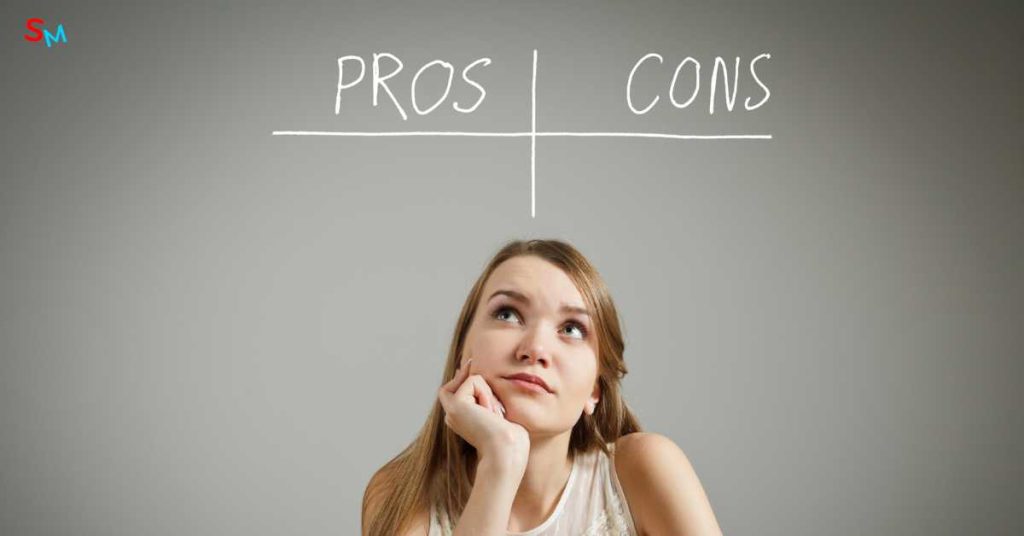
Personal loans are a popular financial product due to their versatility and accessibility. However, like any type of loan, they come with both advantages and disadvantages. In this section, we will examine the pros and cons of personal loans to give you a better understanding of whether a personal loan is right for your financial situation.
7 Pros Of Taking out a Personal Loan
- Flexibility: Personal loans can be used for a variety of purposes, such as paying for a wedding, financing a home renovation, or covering unexpected medical expenses. Unlike other types of loans, there are no restrictions on how you can use the funds.
- Easy to access: Personal loans are generally easy to apply for, and many lenders offer quick approval and funding. Some lenders even offer online applications, making it easy to apply from the comfort of your own home.
- Predictable payments: Personal loans typically have fixed interest rates and monthly payments, which makes it easy to budget and plan for repayment.
- Lower interest rates than credit cards: Personal loans can offer lower interest rates than credit cards, especially if you have a good credit score. This can make it a more cost-effective option for financing large purchases or consolidating high-interest debt.
- Build credit: Taking out and repaying a personal loan on time can help improve your credit score. This is because personal loans are instalment loans, which means they are paid back over a set period of time with regular payments. Making on-time payments can help demonstrate your creditworthiness to lenders and boost your credit score.
- No collateral required: Unlike secured loans, such as a mortgage or auto loan, personal loans don’t require collateral. This means you don’t have to put your assets, such as your home or car, at risk if you are unable to repay the loan.
- Can be used for emergency expenses: Personal loans can be a useful option for unexpected or emergency expenses, such as medical bills or car repairs. They can offer quick funding, which can be especially important in a time-sensitive situation.
7 Cons Of Taking Out A Personal Loans
- High-interest rates: Personal loans can come with high-interest rates, especially if you have a low credit score. This can make borrowing more expensive in the long run.
- Fees: In addition to interest rates, personal loans can also come with fees such as origination fees or prepayment penalties. These fees can add up and make the loan more expensive than anticipated.
- Risk of default: Because personal loans are unsecured, meaning they don’t require collateral, lenders may charge higher interest rates to offset the risk of default. If you are unable to make your payments, you risk damaging your credit score and facing legal action.
- May lead to overborrowing: Since personal loans are generally easy to apply for and access, some borrowers may be tempted to borrow more than they need. This can lead to overborrowing and make it difficult to repay the loan in a timely manner.
- Risk of debt cycle: If you take out a personal loan to consolidate debt but continue to accumulate additional debt, you may end up in a debt cycle. This can lead to long-term financial consequences and damage your credit score.
- Not suitable for all financial situations: Personal loans may not be the best option for all financial situations. For example, if you have a low credit score, you may be offered high-interest rates that make the loan more expensive than other options. In some cases, a secured loan or alternative financing option may be a better fit.
- Potential for hidden fees: Some lenders may charge additional fees for late payments or other circumstances. These fees can add up and make the loan more expensive than anticipated.
The Pros and Cons of Taking Out A Personal Loans
Pros |
Cons |
|
| 1 | Flexibility: Can be used for a variety of purposes | High-interest rates: May come with high-interest rates, especially for those with a low credit score |
| 2 | Easy to access: Generally easy to apply for and quick approval and funding. | Fees: They may come with origination fees, prepayment penalties, or other fees that can add up |
| 3 | Predictable payments: Typically have fixed interest rates and monthly payments | Risk of default: Unsecured loans, so lenders may charge higher interest rates to offset the risk of default |
| 4 | Lower interest rates than credit cards: Can offer lower interest rates than credit cards, especially for those with good credit. | May lead to overborrowing: May lead to borrowing more than needed and making it difficult to repay the loan |
| 5 | Build credit: Taking out and repaying on time can help improve credit score. | Risk of debt cycle: May lead to a debt cycle if additional debt is accumulated |
| 6 | No collateral required: Don’t require collateral, so assets are not at risk. | Not suitable for all financial situations: May not be the best option for those with a low credit score or in certain financial situations |
| 7 | Can be used for emergency expenses: Can offer quick funding in unexpected or emergency situations. | Potential for hidden fees: Some lenders may charge additional fees that can make the loan more expensive than anticipated. |
Impact Of Personal Loan On Credit Score
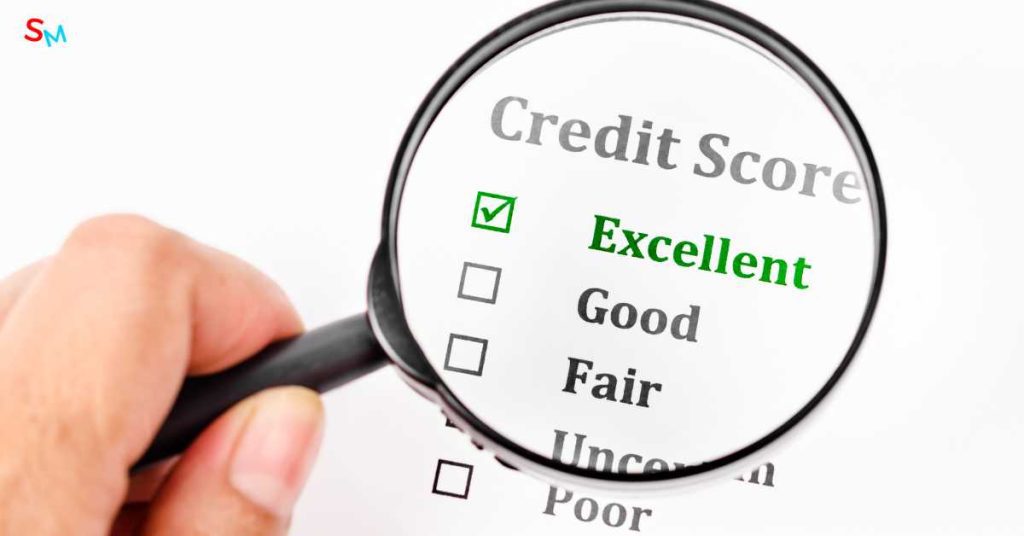
Sometimes we want to ascertain the amount of damage done to our credit score, hence the question keeps popping up “Are Personal Loans Bad for Credit?”. And I don’t think it’s bad news to tell you that personal loans can impact your credit score in several ways because they can affect it both positively and negatively.
Positive Impact
If you make on-time payments and pay off the loan as agreed, it can help improve your credit score. Payment history is the most significant factor affecting your credit score, accounting for 35% of your FICO score. By making timely payments, you demonstrate to lenders that you are reliable and responsible, which can help improve your creditworthiness.
In addition, personal loans can also improve your credit mix. Having a mix of different types of credit, such as credit cards, auto loans, and personal loans, can help improve your credit score. This is because lenders like to see that you can manage different types of credit responsibly.
Negative Impact
However, taking out a personal loan can also have a negative impact on your credit score if you don’t make your payments on time or if you apply for too many loans at once. Applying for multiple loans can lead to hard inquiries on your credit report, which can negatively impact your credit score.
Additionally, if you are unable to make your loan payments on time, it can result in missed payments, which can also negatively impact your credit score. Late payments can stay on your credit report for up to seven years and can significantly lower your credit score.
It’s important to carefully consider your financial situation and your ability to repay the loan before applying for a personal loan. It’s also important to make your payments on time and in full to avoid negative impacts on your credit score.
Pros and Cons of Personal Loans for Debt Consolidation
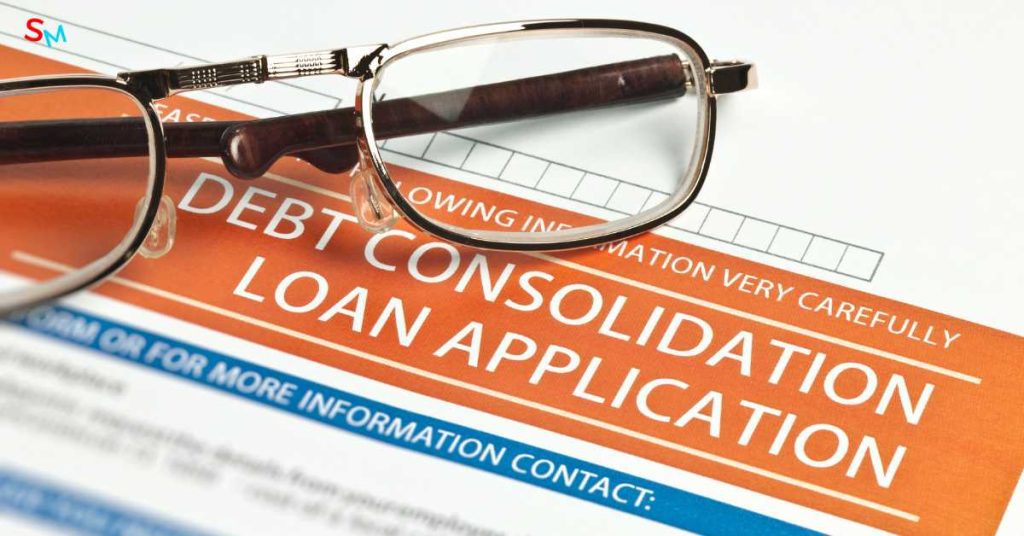
What is Debt Consolidation
Debt consolidation is a financial strategy where you take out a new loan to pay off multiple other debts, such as credit card balances, personal loans, or other high-interest debts. The goal of debt consolidation is to simplify your debt repayment by combining multiple debts into one monthly payment with a lower interest rate.
The new loan used for debt consolidation may have a longer repayment period, which can help lower the monthly payments and make them more manageable. It can also help reduce the total interest paid over the life of the loan, making it a more cost-effective way to manage your debt.
There are different ways to consolidate debt, including taking out a personal loan, using a balance transfer credit card, or utilizing a home equity loan or line of credit. It’s important to consider the terms and fees associated with each option before deciding on the best debt consolidation strategy for your individual financial situation.
Debt consolidation can be an effective way to simplify debt repayment and potentially save money on interest charges, but it’s important to remember that it’s not a solution for underlying financial problems. It’s essential to address the root causes of the debt and make changes to your spending and budgeting habits to avoid falling into debt again in the future.
Personal loans can be a useful tool for debt consolidation. Here are some of the key pros and cons to consider when using a personal loan for debt consolidation:
Pros Of Debt Consolidation
- Lower interest rates: Personal loans for debt consolidation can often offer lower interest rates than credit cards or other high-interest debt, which can save you money in the long run.
- Simplify payments: Consolidating multiple debts into one loan can simplify your payments and make it easier to keep track of your finances.
- Fixed payments: Personal loans for debt consolidation typically come with fixed payments, which can help you budget and plan for your payments over time.
Cons Of Debt Consolidation
- Fees: Personal loans for debt consolidation may come with origination fees or other fees that can add to the total cost of the loan.
- Risk of accruing more debt: Consolidating your debt into a personal loan can free up credit on your credit cards, which can be tempting to use and result in more debt if you’re not careful.
- Requires discipline: Consolidating your debt with a personal loan requires discipline and a plan to pay off the loan over time. If you’re not committed to making your payments on time and in full, it can lead to missed payments and a negative impact on your credit score.
How To Use A Personal Loan For Debt Consolidation
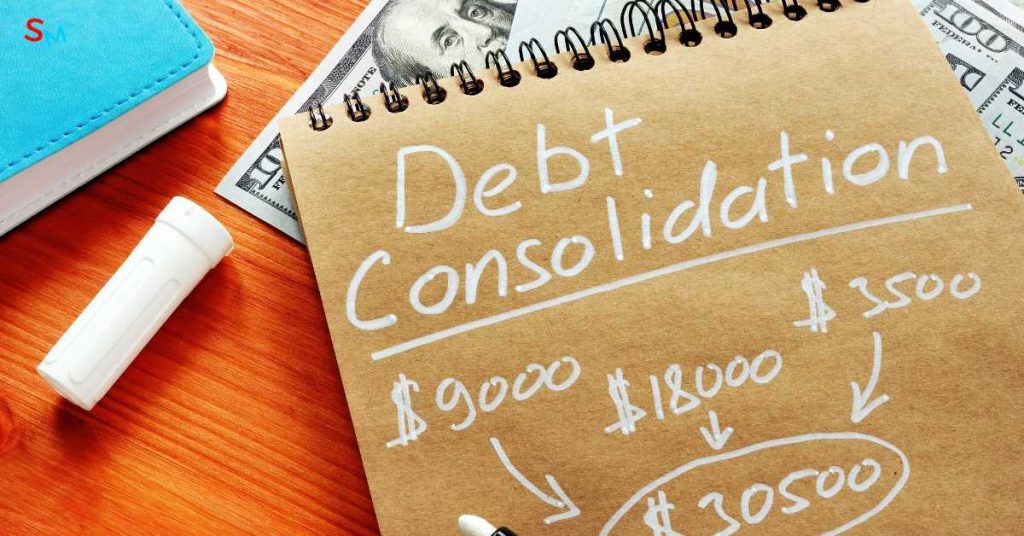
1. Determine your total debt
The first step to using a personal loan for debt consolidation is to determine your total debt. Gather all your credit card bills, personal loans, and any other debts you want to consolidate. Add up the total amount you owe to get a clear picture of how much debt you need to consolidate.
2. Shop around
Research different lenders and compare their interest rates, fees, and loan terms. Look for a lender that offers a lower interest rate than your current debts, as this will help you save money on interest over time. You can compare loan options online, through a personal finance website, or by reaching out to lenders directly.
3. Apply for the loan
Once you’ve selected a lender, you can start the application process. You’ll need to provide personal and financial information, including your income, employment status, and credit score. The lender will use this information to determine your eligibility and the loan amount and interest rate you qualify for.
4. Use the loan to pay off your debt
If you’re approved for the loan, the lender will provide you with the loan proceeds. You can then use these funds to pay off your existing debts, including credit card balances, personal loans, and other debts. It’s important to pay off your debts in full to avoid additional interest charges and fees.
5. Make payments on time
After consolidating your debt with a personal loan, it’s crucial to make your payments on time and in full. Late or missed payments can lead to late fees, penalty interest rates, and a negative impact on your credit score. Make sure you have a plan to make your payments on time each month, and consider setting up automatic payments to help ensure you don’t miss a payment.
See pros and cons of personal loans to pay off credit card debt
5 Important Factors To Consider Before Taking Out A Personal Loan
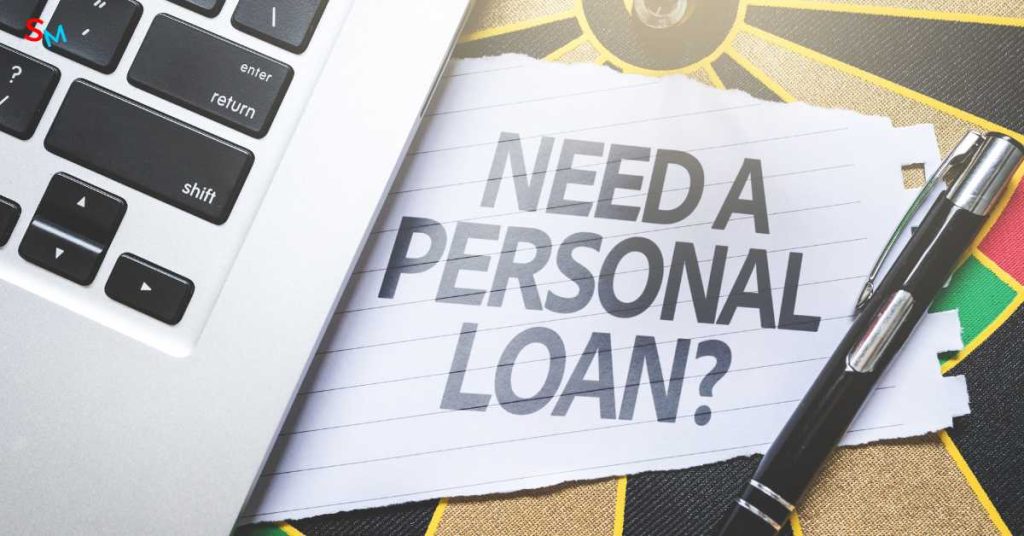
Before taking out a personal loan, it’s only wise to consider these factors to ensure that it’s the right financial decision for your situation. Here are some key factors to consider:
1. Purpose of the loan
The first thing to consider before taking a personal loan is the purpose of the loan. You should only take out a loan if it’s necessary and has a specific purpose, such as debt consolidation, home improvement, or unexpected expenses. If you’re considering taking out a loan for a non-essential purpose, it’s best to hold off until you can save up the funds.
2. Interest rates and fees
Personal loans come with interest rates and fees that can significantly impact the cost of borrowing. It’s important to shop around and compare interest rates and fees from multiple lenders before choosing a loan. Look for a loan with the lowest interest rate and fees to save money over the life of the loan.
3. Repayment terms
Before taking out a loan, make sure you understand the repayment terms, including the length of the loan, the monthly payment amount, and the total cost of the loan. Choose a loan with a repayment term that fits your budget and financial goals.
4. Credit score
Your credit score plays a significant role in your ability to qualify for a loan and the interest rate you’ll pay. Before applying for a loan, check your credit score and address any errors or issues that may be negatively impacting your score. A higher credit score can help you qualify for a lower interest rate and save money over the life of the loan.
5. Monthly budget
Consider your monthly budget when deciding how much to borrow and the repayment terms. Ensure that the monthly payment amount fits within your budget and won’t cause financial strain. You don’t want to take out a loan that you can’t afford to repay.
5 Smart Ways To Protect Credit Score
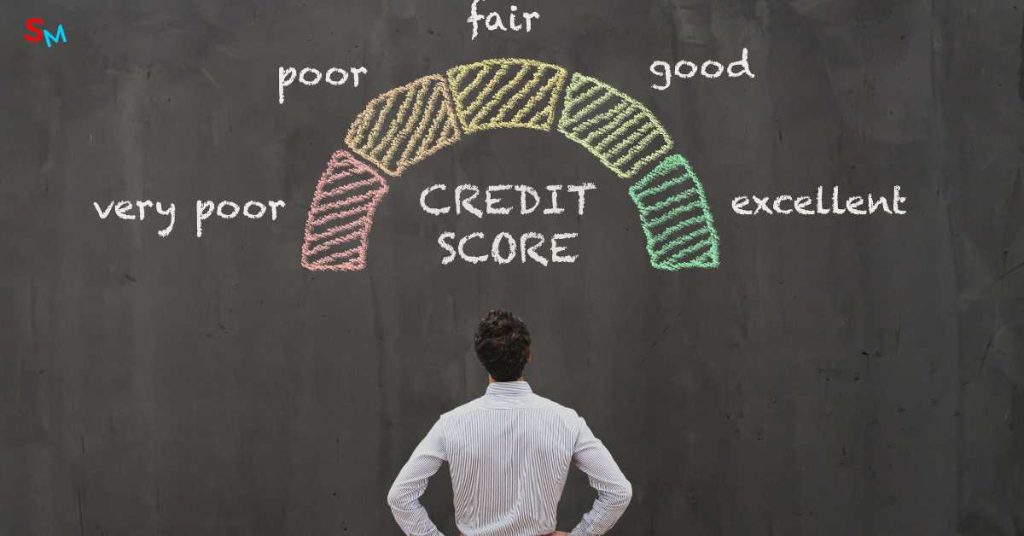
Your credit score is an essential part of your financial health and can impact your ability to obtain loans, credit cards, and even housing. Here are some smart ways to protect your credit score:
1. Make payments on time
Your payment history is the most crucial factor that impacts your credit score. Late payments can have a significant negative impact on your score, so it’s essential to make payments on time. Consider setting up automatic payments or reminders to ensure that you never miss a payment.
2. Keep credit utilization low
Your credit utilization ratio is the amount of credit you’re using compared to your total credit limit. A high credit utilization ratio can negatively impact your score, so it’s essential to keep it low. Try to keep your credit utilization below 30% of your total credit limit.
3. Monitor your credit report
Regularly monitoring your credit report can help you identify any errors or fraudulent activity that may be negatively impacting your score. You’re entitled to a free credit report from each of the three major credit bureaus once a year, so take advantage of this and check your report regularly.
4. Don’t close old credit accounts
The length of your credit history is an essential factor in your credit score. Closing old credit accounts can negatively impact your credit history and score, so it’s best to keep them open. Consider using the account occasionally to keep it active.
5. Limit credit inquiries
Each time you apply for credit, it results in a hard inquiry on your credit report, which can negatively impact your score. Try to limit credit inquiries by only applying for credit when necessary and spacing out applications.
5 Good Alternatives To Personal Loans

You do not have to put your credit score at risk all the time because personal loans are just one option for borrowing money, and there are several alternatives to consider depending on your financial situation and borrowing needs. Here are some alternatives to personal loans:
1. Credit cards
If you need to borrow a smaller amount of money, a credit card can be a convenient option. However, credit cards often come with higher interest rates, so it’s essential to make payments on time and pay off the balance as quickly as possible.
2. Home equity loan or line of credit
If you own a home, a home equity loan or line of credit may be an option. These loans use your home as collateral and can often offer lower interest rates than personal loans. However, it’s important to consider the risks of using your home as collateral and ensure that you can make the payments.
3. 401(k) loan
If you have a 401(k) retirement plan, you may be able to borrow from it. 401(k) loans typically have lower interest rates than personal loans, and the interest payments go back into your retirement account. However, it’s important to consider the long-term impact on your retirement savings and ensure that you can make the payments.
4. Family or friends
If you have a trusted family member or friend, they may be willing to lend you money. However, it’s important to treat this as a formal loan and create a written agreement outlining the terms and repayment plan.
5. Negotiate with creditors
If you’re struggling to make payments on existing debts, consider negotiating with creditors to lower interest rates or create a repayment plan that works for you.
FAQs
Is a personal loan a good idea for debt consolidation?
A personal loan can be a good option for debt consolidation, as it can help simplify debt repayment and potentially save money on interest charges. However, it’s important to consider the terms and fees associated with the loan and ensure that you can make the payments.
Are personal loans bad for credit?
Personal loans can have both positive and negative effects on your credit score, depending on how you use them. Taking out a personal loan and making timely payments can improve your credit score while missing payments or defaulting on the loan can hurt your score.
How can I protect my credit score when taking out a personal loan?
To protect your credit score when taking out a personal loan, it’s important to make payments on time and avoid defaulting on the loan. You should also consider paying off the loan as quickly as possible to minimize the impact on your credit score.
Is a personal loan a good idea?
Whether a personal loan is a good idea depends on your individual financial situation and borrowing needs. It’s important to consider the terms and fees associated with the loan and evaluate alternatives before deciding on the best borrowing option for you.
How long does it typically take to get approved for a personal loan?
The time it takes to get approved for a personal loan can vary depending on the lender and your individual financial situation. Some lenders may offer instant or same-day approval, while others may take several days or weeks to process your application.
Can I use a personal loan for any purpose, or are there restrictions?
In most cases, you can use a personal loan for any purpose you choose, such as debt consolidation, home improvements, or medical expenses. However, some lenders may have restrictions on how you can use the funds, so it’s important to check with the lender before applying.
How much can I borrow with a personal loan?
The amount you can borrow with a personal loan varies depending on the lender and your individual financial situation. Some lenders may offer loans as small as a few hundred dollars, while others may offer loans up to $100,000 or more.
What are the typical repayment terms for a personal loan?
The repayment terms for a personal loan vary depending on the lender and your individual financial situation. Some lenders may offer repayment terms as short as a few months, while others may offer terms of several years.
Are there any fees associated with taking out a personal loan?
Yes, there may be fees associated with taking out a personal loan, such as origination fees, application fees, and prepayment penalties. It’s important to review the loan terms and fee schedule carefully before agreeing to the loan.
Can I pay off my personal loan early without penalty?
Some lenders may allow you to pay off your personal loan early without penalty, while others may charge prepayment penalties. It’s important to review the loan terms carefully and ask the lender about their prepayment policy before agreeing to the loan.
What credit score do I need to qualify for a personal loan?
The credit score required to qualify for a personal loan varies depending on the lender and the loan amount. Generally, lenders prefer borrowers with good to excellent credit scores (typically 670 or higher), but there are also lenders that offer loans to borrowers with fair or poor credit.
Are there any lenders that specialize in personal loans for people with bad credit?
Yes, there are lenders that specialize in personal loans for people with bad credit. However, these loans may come with higher interest rates and fees and may require collateral or a co-signer.
How does the interest rate on a personal loan compare to other borrowing options, such as credit cards or home equity loans?
The interest rate on a personal loan can vary depending on the lender and your credit score, but it is typically lower than the interest rate on a credit card. Home equity loans or lines of credit may offer lower interest rates than personal loans, but they require collateral (your home) and may come with higher fees.
Conclusion
personal loans can be a helpful tool for managing debt or financing unexpected expenses, but they also come with risks and downsides. Before taking out a personal loan, it’s important to carefully consider the pros and cons of personal loans, as well as alternatives and repayment terms. It’s also crucial to protect your credit score and avoid taking on more debt than you can comfortably repay. Overall, a personal loan can be a good option if you have a solid plan for repayment and use the funds wisely, but it’s important to weigh the potential consequences before making a decision.
The point of view of your article has taught me a lot